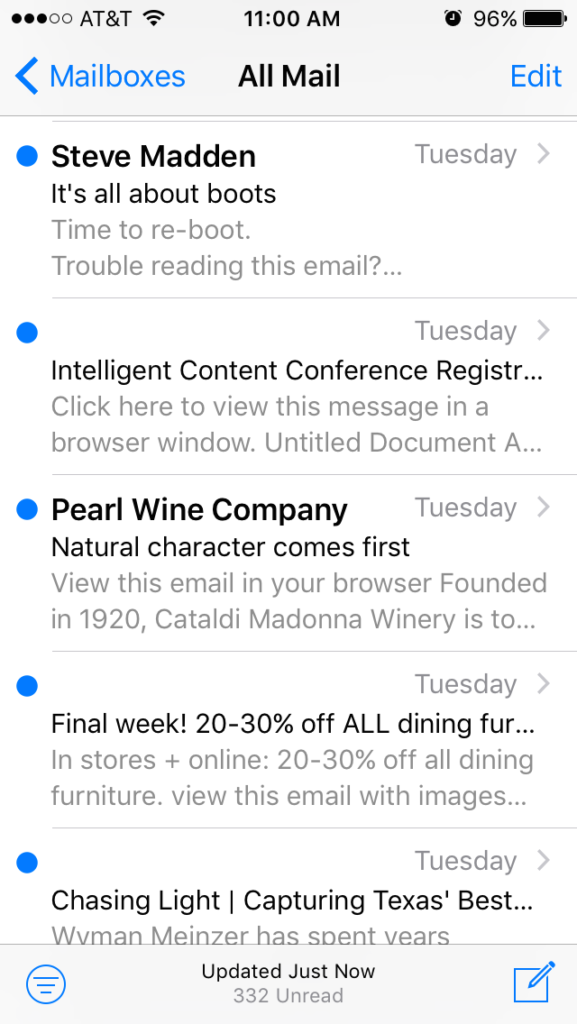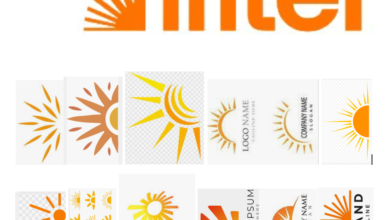[ad_1]
You see them everywhere. “Best Email Subject Line” lists tempt you with promises of increased open rates. They guarantee subject lines that will “finally stand out in your consumer’s crowded inbox.” And perhaps, most devastatingly, they vow to be “easy.”
So, what really happens when you open “159 Best Email Subject Line Ideas for Fall?” Unfortunately, the first one on the list is probably “spooktacular,” or something about “ghoulishly low prices.” Let’s pause for moment so that I can admit that I have absolutely used “spooktacular” in one or two of my past lives as a copywriter. There was also the unfortunate time “You better be-leaf these prices” seemed like a brilliant subject line to run.
All that to say, I get it. Especially if you’re not a writer, but simply a harried marketer trying to meet a deadline, ain’t nobody got time to brainstorm 25 possible iterations of one subject line. But you can do better than some of the lists out there. Here’s why.
“If you only read the books that everyone else is reading, you can only think what everyone else is thinking.”
– Haruki Murakami
This may be a little meta for a blog post about subject lines, but it’s no less true. I have two emails in my inbox already boasting spooktacular subject lines, and it’s not even mid-October yet. I assure you, there will be more.

So how does one craft the best email subject line without pulling from the lists every other content marketer is pulling from? Start by knowing your audience.
Know Your Audience
If you don’t know who your audience is or what your brand voice is, your subject lines will suffer. The result is that your content, including subject lines, will probably be in your own voice, which may or may not be in line with your target audience.
In one of my first copywriting jobs, my company’s target audience was women between the ages of 35 and 65 years old, primarily living in the midwest. I was a 25 year old millennial blaring Beyonce through her work headphones. If I had written copy in my own voice, it probably wouldn’t have resonated.
Find out who your audience is and A/B test what subject lines work best for them. There are endless resources on subject line best practices, but I’m a firm believer in doing what’s right for your audience. It turns out that straight-forward, informative subject lines worked best for that midwestern, primarily female audience. In other words, we dropped “spooktacular” from our headlines, and led with our straightforward benefit and offer. It increased our open- and conversion rates, but a different audience might have required and benefitted from a different approach.
Know your audience, write down your brand voice and brand standards, and make sure they’re shared with everyone who communicates for your brand. The easiest way to do that? Store your brand voice guidelines in your Digital Asset Management (DAM) platform. Include metadata that educates your internal users on how speak to your audience in email, social media, and other channels.
By knowing who your audience is and how to talk to them, and sharing that information with your marketing team, you’ll find it’s faster and easier to hone in on an appropriate subject line when you need it. The result will be on brand messaging that resonates with your audience.
Pick Informative Over Cute
Have you ever crafted the most punny, perfect subject line of your career, only to have the analytics come back with a whopping 4% open rate? First off, please send it to me because I love it already. Second, that’s probably because you didn’t communicate an actual benefit or offer in your subject line. A good rule of thumb? Always lean towards informative subject lines over cute ones.
My personal favorite formula is short and simple from revered copywriter Gary Bencivenga. It goes like this:
Interest = Benefit + Curiosity
You’ll find hundreds of subject line formulas on the web, but as long as you include a benefit, pique your audience’s interest, and keep it informative, you (and your open rate) will be fine.
And just so we’re clear, going informative over cute, doesn’t mean you have to be boring. Take these subject lines:
The Good:

The discount is the benefit to the reader, and the intrigue is the tease of what’s on sale.

This email offers the benefit of sharing eight principles of successful marketing with the reader. The infographic entices the open.

This subject line is looking for qualified clicks only, please! If cooking and sauces resonate with you, Mouth wants your click.

The magazine subscription ask is probably one of the most difficult in today’s digital age. And we’ve all had our inbox flooded with those “LAST CHANCE,” “99% OFF FOR 5 MINUTES ONLY” subscription emails. Domino does us one smarter teasing five reasons their newest issue will make you subscribe. This is an excellent example of letting your quality content speak for itself.

When in doubt, add an emoji. Emails with emojis in the subject line enjoy a 45% increase in open rates.

Really Good Emails showing us how really good emails are done.
The Not-So-Good:

This subject line tells me nothing. It promises “The perfect disguise,” but what’s the benefit to me? Why do I need a disguise? Why will it be perfect? And telling their audience they’re in for a treat isn’t half as impactful as making them “feel” that they’re getting a treat.

This doesn’t offer a benefit and the intrigue “Mom?!” doesn’t hit home. I’m not sure what’s supposed to draw me in or who their target is. Is it moms or kids with moms? A subject line should make it easy for you to click through. This one has me thinking too hard.

Oh! Remember those pushy magazine subscriptions we were talking about earlier? Don’t be this person.

Just no.
Keep it Mobile Friendly
With 40% of emails being opened on mobile devices, it’s imperative to keep things mobile friendly. That 40% number can soar upwards, depending on your audience, so make sure your emails render well and keep your subject lines short. Under 50 characters, including spaces, is best. Keep things 25-30 characters if you want to optimize for the amount of text your audience will actually read.
These character caps ensure that your message isn’t cut off, leaving your audience with an unclear or unfortunate impression when they’re scanning their mobile inbox.

Steve Madden and Pearl Wine Company stand out with concise, mobile-friendly formatting. The other three emails blur on past the character restrictions, appearing cluttered and less reader-friendly. The email at the very bottom of the screen doesn’t give the reader any idea of what it contains, which is a problem for open rates.
Make Use of Preview Text
Whether in mobile or desktop, preview text allows you to get more valuable information in front of your reader and increases your chances of an open. Think of preview text as a way to continue the story of your subject line. Finish your thought, and please, don’t let that thought be “To view this email as a web page, click here.”

Here’s a solid example of great use of preview text:

This preview text rounds out the subject line’s hook and beefs up the main message with further intrigue and benefit. As the exact amount of text that shows up will depend on the email provider and use device, a good rule of thumb is to keep these under 75 characters.
Ready to learn how Brandfolder can help you build a better brand, from the best email subject line to global marketing campaigns? Get a free quote by clicking the banner below.
Source link






